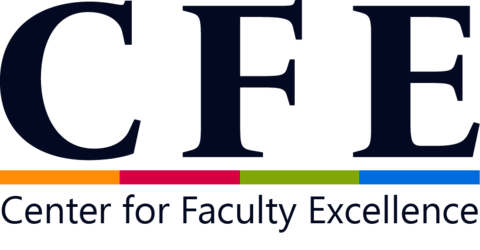
Committee on Assurance of Student Learning Resources
Assessment Bibliographies and Resource Lists
Assessment Best Practices
- 9 Principles of Good Practice for Assessing Student Learning. These principles are the product of the now-defunct American Association for Higher Education.
- Bogue, E. G., & Hall, K. B. (2003). Quality and accountability in higher education: Improving policy, enhancing performance. Westport, CT: Praeger. Available at Brookens Library.
- Gates, S. M., Augustine, C. H., Benjamin, R., Bikson, T. K., Kaganoff, T., Ley, D. G., et al. (2002). Ensuring quality and productivity in higher education: An analysis of assessment practices No. 29 (1). San Francisco: Jossey-Bass. Available at Brookens Library.
Glossaries
- Assessment Resource Center. Glossary. National Center on Measurement in Education.
- Ferris State University. Assessment glossary.
- University of South Carolina, Institutional Effectiveness.
Assessment Overviews
- Assessment 101: Modules 1 and 2 on the CASL website
- Kuh, George D., et al. (Eds.) (2015). Using evidence of student learning to improve higher education. San Francisco: Jossey-Bass.
- Suskie, Linda and Trudy W. Banta (2009). Assessing Student Learning: A Common Sense Guide. 2nd ed. San Francisco: Jossey-Bass.
- Walvoord, Barbara E. (2010). Assessment Clear and Simple: A Practical Guide for Institutions, Departments, and General Education. 2nd ed. San Francisco: Jossey-Bass.
Topics in Assessment
Assessment and Accreditation
- Holden, Barker, Rosenberg, & Onghena, (2007). Assessing progress toward accreditation related objectives: Evidence regarding the use of self-efficacy as an outcome in the advanced concentration research curriculum. Research on Social Work Practice, 17(4), 456-465.
- Kern, S., Sherman, S., & Conte, A. (2004). Evaluation of a standards-based teacher-preparation program. Educational Forum, the, 68(4), 358-369.
Assessment and General Education
- Stone, & Friedman,. (2002). A case study in the integration of assessment and general education: Lessons learned from a complex process. Assessment & Evaluation in Higher Education, 27(2), 199-211.
- Walvoord, Barbara E. (2010). Assessment Clear and Simple: A Practical Guide for Institutions, Departments, and General Education. 2nd ed. San Francisco: Jossey-Bass.
Assessment and Graduate Education
- Bilder, A. E., & Conrad, C. F. (Winter 1996). Challenges in assessing outcomes in graduate and professional education. New Directions for Institutional Research, 92, 5-16.
- Delaney, A. M. (1997). Quality assessment of professional degree programs. Research in Higher Education, 38(2; 2), 241-264.
- Haworth, J. G. (Winter 1996). Assessment in graduate and professional education: Present realities, future prospects. New Directions for Institutional Research, 92, 89-97.
- Maki, P. L., & Borkowski, N. A. (2006). The assessment of doctoral education: Emerging criteria and new models for improving outcomes. Stylus Publishing, LLC.
- Orzoff, J. H., Peinovich, P. E., & Riedel, E. (2008). Graduate programs: The wild west of outcomes assessment. Assessment Update, 20(3), 1-16.
- Stanley, E. C., & Patrick, W. J. (1998). Quality assurance in American and British higher education: A comparison. New Directions for Institutional Research,
Assessment and Online Education
- Butcher, & Sieminski (2006). The challenge of a distance learning professional doctorate in education. Open Learning, 21(1), 59-69.
- Juwah, (2003). Using peer assessment to develop skills and capabilities. USDLA Journal, 17(1).
- Thompson, T., & MacDonald, C. (2005). Community building, emergent design and expecting the unexpected: Creating a quality eLearning experience. Internet and Higher Education, 8(3), 233-249.
Assessment and Program Review
- Hogan, T. P., Dreisbach, J. H., & Stirton, E. R. (1999). The focused program review as an alternative to the standard comprehensive review. Assessment Update, 11(3), 6.
- Mets, L. (Summer 1995). Program review in academic departments. New Directions for Institutional Research, 86, 19-36.
Assessment and Student Engagement
- Hu, Kuh, G., & Li, (2008). The effects of engagement in inquiry-oriented activities on student learning and personal development. Innovative Higher Education, 33(2), 71-81.
Assessment of Attitudes, Values, Dispositions, Behaviors, and Habits of Mind
- Suskie and Banta (2009). Assessing Attitudes, Values, Dispositions, and Habits of Mind, in Assessing Student Learning: A Common Sense Guide. 2nd ed. San Francisco: Jossey-Bass. 183-201.
Effective Assignments and Assessment
- Suskie and Banta (2009). Creating an Effective Assignment. Assessing Student Learning: A Common Sense Guide. 2nd ed. San Francisco: Jossey-Bass. 155-164.
Grades vs. Assessment
- How Grades and Assessment are Different, but Can Overlap
- Grading vs. Assessment of Learning Outcomes: What’s the difference? [source not found]
- Assessment of Student Learning Outcomes vs. Grades
- How Rubrics Can Turn Grading Into Assessment [source not found]
- The Use of Rubrics for Assessment, Grading, and Encouraging Student Learning
- Sample Rubrics
- Empire State College, State University of New York – A collection of rubrics for the arts, humanities, natural science, social science and American history.
Learning Outcomes Assessment
- How to Write Outcomes for Student Learning at the Program Level.
- How to Write Outcomes for Student Learning at the Course Level
- Laney College, Peralta Community College (contains examples of specific course learning outcomes)
- Bloom’s Taxonomy Verbs
